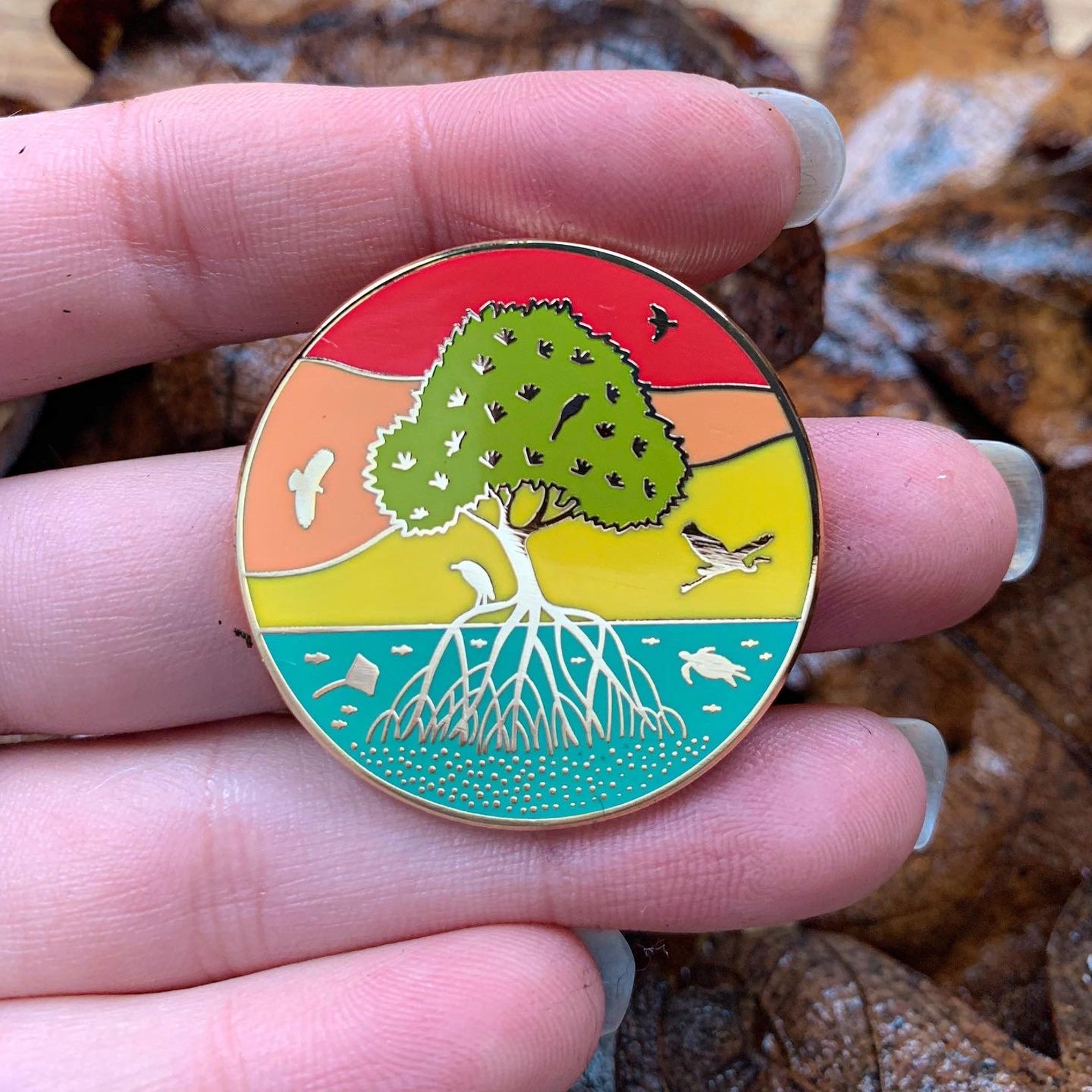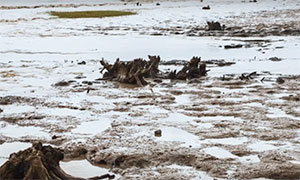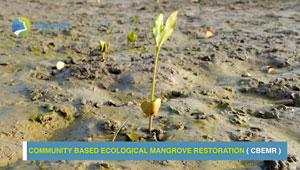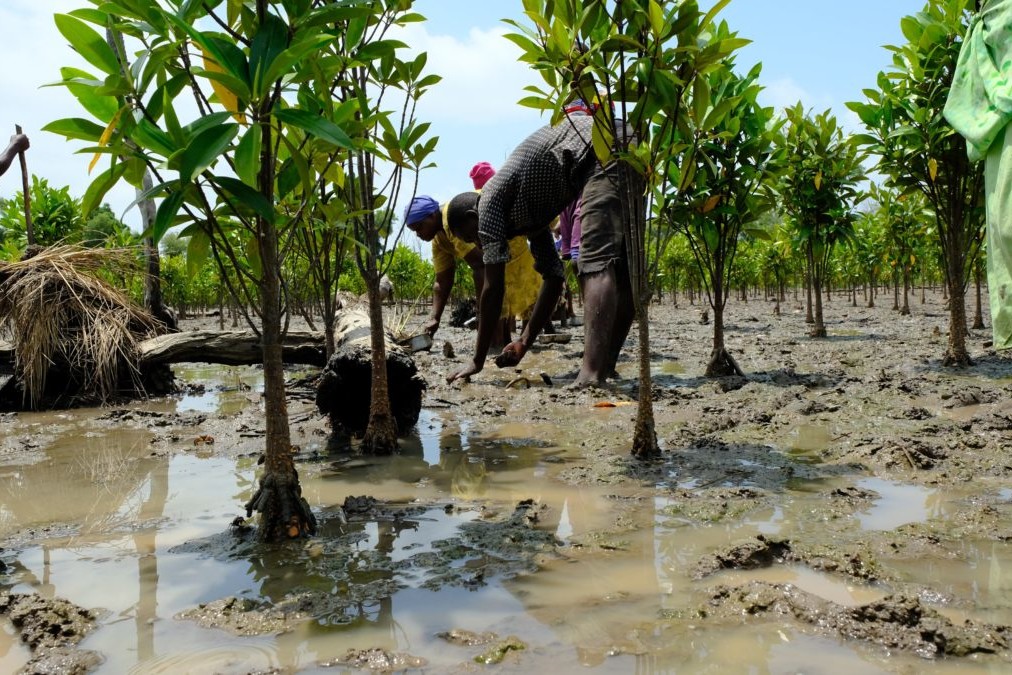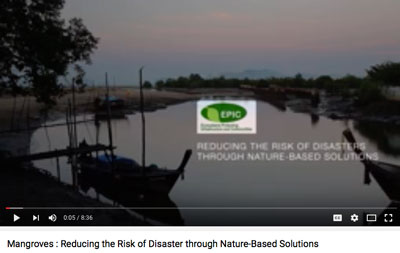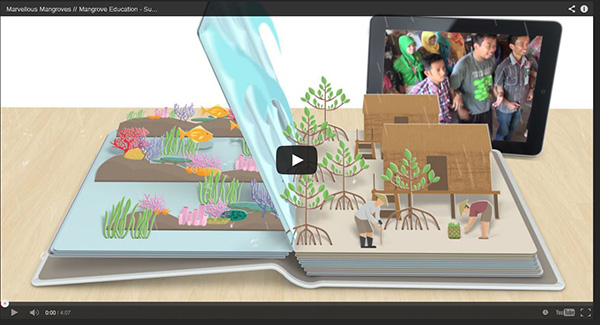Mangrove Photography Awards: Highlighting valuable ecosystems 
GLOBAL – Did you know that mangroves are among the most undervalued ecosystems on the planet? They help to reduce rising global temperatures, prevent food shortages and protect the world’s biodiversity. They are still considered by many as unimportant wastelands, but your images have the power to tell a very different story. Mangrove Action Project has launched its 7th annual Mangrove Photography Awards to illustrate the importance and diversity of life in our mangrove forests, engage audiences in mangrove issues and stories, whilst inspiring people to take conservation action. The awards offer a chance for photographers, both amateur and professional, to raise their voices for the protection of one of our most critical and undervalued ecosystems. Last year’s awards gave us a fascinating insight into the world of mangroves from all corners of the earth. Jaguars in mangroves, dancing trees, grinning crocodiles, pink waterscapes, and flamingos reclaiming a lost habitat were some of the intriguing images from last year’s awards with over a thousand entries from nearly 70 countries. Last year’s judge Cristina Mittermeier said, “Through impactful imagery and visual storytelling, we can rally people to action, sparking empathy and connection to our natural world.”
READ MOREGLOBAL
7th annual Mangrove Photography Awards under way

USA – Mangrove Action Project is proud to be a Supporting Partner of the UN Decade on Ecosystem Restoration – a global, collaborative effort to ‘halt the degradation of ecosystems, and restore them to achieve global goals. Mangrove Action Project is hosting its 7th annual Mangrove Photography Awards, which gives us a fascinating insight into the world of mangroves from all corners of the earth. The awards offer a chance for photographers, both amateur and professional, to raise their voices for the protection of one of our most critical and undervalued ecosystems. The aim is to illustrate the importance and diversity of life in our coastal forests, engage audiences in mangrove issues and stories, whilst inspiring people to take conservation action. Join MAP as we celebrate both the launch of the UN Decade of Restoration and the 7th annual Mangrove Photography Awards. PHOTO SUBMISSIONS NOW OPEN! CLICK HERE
AFRICA
The worrying degradation of mangrove ecosystems in Port-Gentil
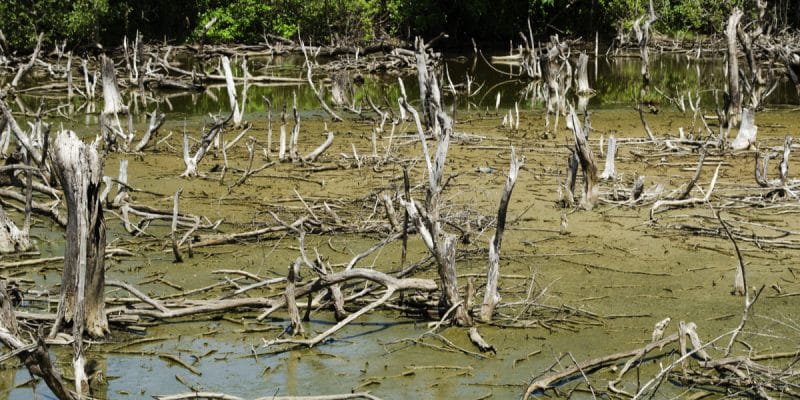
GABON – The degradation of mangrove ecosystems in Port-Gentil, the oil capital of Gabon, remains a concern. The report of the inspection missions carried out in this city by experts from the non-governmental organisation (NGO) Healthy Growth Environment, reports advanced degradation and pollution of mangrove ecosystems as well as the ancestral tombs of the Orungu people of Port-Gentil. After identifying the causes and consequences of this degradation on living and non-living organisms, Croissance saine environnement, through its president Nicaise Moulombi, presented the report of the Port-Gentil missions to Lee White, the Gabonese Minister of Water, Forests, the Sea and the Environment, in charge of the Climate Plan and the Land Use Plan. “The presentation of the results of our studies to the Minister of the Environment comes at a time when our country has just concluded the activities deployed for the celebration of the national week of the environment and especially at a time when President Ali Bongo Ondimba has just reaffirmed his commitment to the decade of ecosystem restoration launched by the United Nations,” explains Nicaise Moulombi. READ MORE
Overexploitation of mangroves threatening coastal ecosystems

The Executive Director of the Environmental Protection Agency (EPA), Dr Kwabena Henry Kokofu, has noted with concern that the overexploitation of mangroves for fuelwood and settlement development along coastal communities in the country is rapidly altering the habitat and reducing the resilience of coastal ecosystem. For him, due to the rapid destruction of mangroves, coastal ecosystem can no longer provide environmental services, including erosion control and habitat for spawning and nursery of juvenile fishes. He explained that anthropogenic activities such as illicit dumping of solid and liquid waste, reclamation of wetlands for development projects, shoreline erosion as well as climate change have all contributed to the degradation of coastal resources. “…these happenings in our coastal environment are of great concern and it is important we all contribute to ensuring that the coastal and marine resources are sustainably managed,” he said. READ MORE
“Lab Mangrove” Helps Identification of New Bacteria

SAUDI ARABIA – A pioneering cultivation strategy that recreates a mangrove environment in the lab has enabled identification of novel bacteria residing in Red Sea mangroves and will help improve understanding of mangrove ecosystem stability, resilience and sustainability Mangroves are highly productive, dominant coastal ecosystems that line between 60-70 percent of the world’s tropical and subtropical coastlines. They harbor diverse microbial communities thought to make up 80 percent of the ecosystem’s biomass. Many of the microbial species, families and taxa are unknown to science. The cultivation strategy was developed by a team of KAUST researchers, including Fatmah Sefrji and Ramona Marasco. “Red Sea mangroves are particularly interesting because they represent an extreme and unique version of mangrove environments that are exposed to stressful conditions, including high temperatures, salinity and oligotrophy,” says Sefrji. “These environmental stresses exert a strong selective force on the mangrove’s microbial communities and so favor the presence of unique species and families.” READ MORE
AMERICAS
Protecting and restoring the world’s mangrove forests
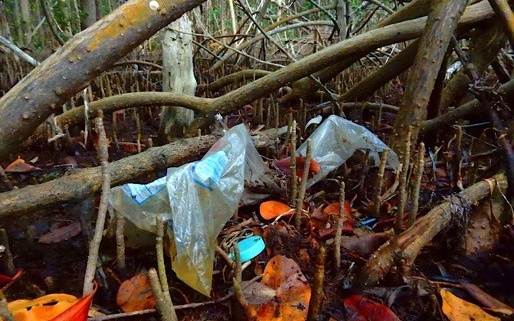
USA – With the International Day of Forests 2021 already a fading memory, perhaps it’s time to forget them for another year and shift our attention to the next worthy cause. Well, no. If anything, we need to be redoubling our efforts to ensure that they remain permanently in the spotlight, not least the most neglected, threatened and undervalued forest type of all. Mangroves have never really had their day in the sun, despite their crucial importance as coastguards, climate allies and wildlife havens. Fauna & Flora International (FFI) views mangrove protection and restoration as an integral part of our global efforts to reverse biodiversity loss and combat climate change, twin challenges that are inextricably linked. Across our project portfolio, we are striving to redress the balance, working with in-country partners to ensure that mangroves receive the attention they deserve. READ MORE
Florida’s Mangroves Aren’t Recovering After Hurricane Irma
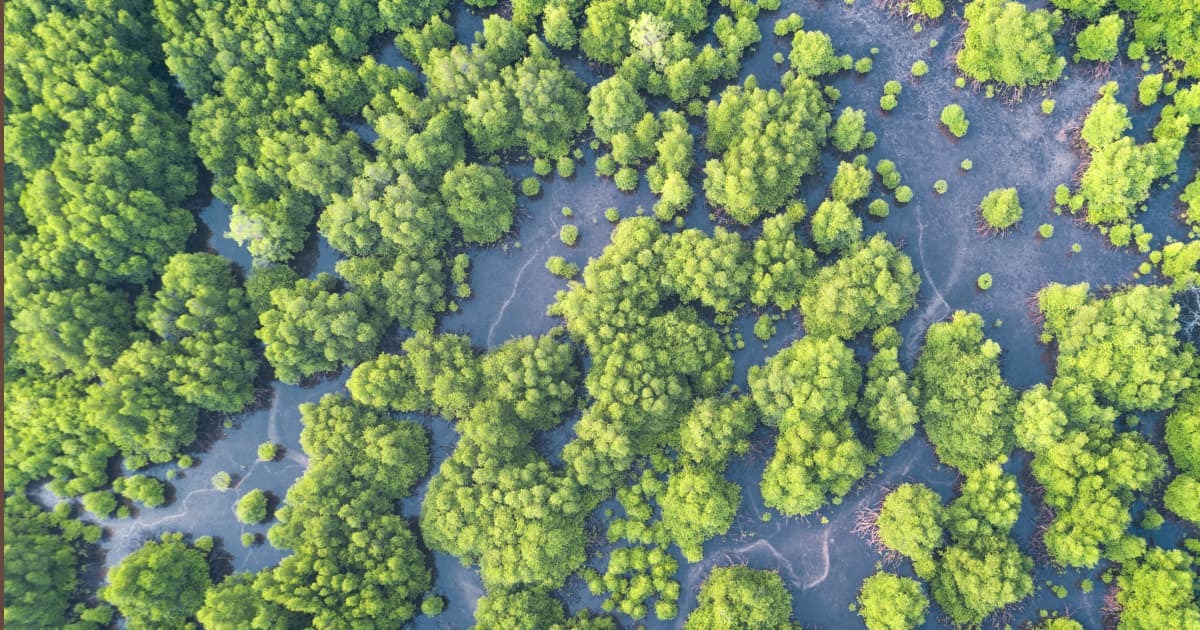
USA – In 2017, Hurricane Irma struck Florida and devastated the area. The category 5 hurricane caused serious damage to the region’s mangrove forests. Now, a paper published in Nature Communications spotlights the impact on the forests after the hurricane. The East Carolina University study, in partnership with NASA and Florida International University, brings yet more urgency to the requirement to take care of the natural ecosystems along our coastlines and brings lessons for coastal communities in what not to do. It spotlights the importance of future storm planning and resilience building along our coasts. It is common for mangroves to suffer damage after a major hurricane. A huge area—as big as 24,000 football fields—died back completely after Hurricane Irma. However, researchers found mangrove forests in Florida has neither rebounded as successfully nor shown as much resilience as it has in the past. Coastal communities are amongst the most vulnerable globally to the effects of our climate crisis. Rising sea levels, flooding, and more regular extreme weather events all threaten lives and livelihoods along our coasts. Coastal wetlands like mangrove forests have a crucial mitigating effect on coastal threats. READ MORE
ASIA
Once Offering Protection From Disasters, Pichavaram Mangrove Forests Face New Threats

INDIA – Pichavaram is home to 14 mangrove species. While locals in the area believe the forest will never decrease in size the mangroves face threats on multiple fronts. According to the SDG INDIA report released recently by the NITI Aayog, in 2019 the area under mangroves in Tamil Nadu increased by 4.26%, but in 2020 it has decreased drastically to 8.16%. Recent studies conducted in the forests have found that the 2004-tsunami, decreasing freshwater and increasing pollutants inflow, have all resulted in the modification of the geochemistry of the region — all factors detrimental to the forests. They also indicate that even though the forest cover in Pichavaram is increasing, the average tree crown size has reduced, suggesting alterations in species succession and plant growth capability. The prevalence of only salt-tolerant species of mangroves was also noted, which indicates a decrease in species richness. Frequent and intense cyclones, a consequence of climate change, are also a threat to the mangrove forest cover. READ MORE
Synergies to be reaped as Singapore and Indonesia set sights on becoming carbon trading hubs
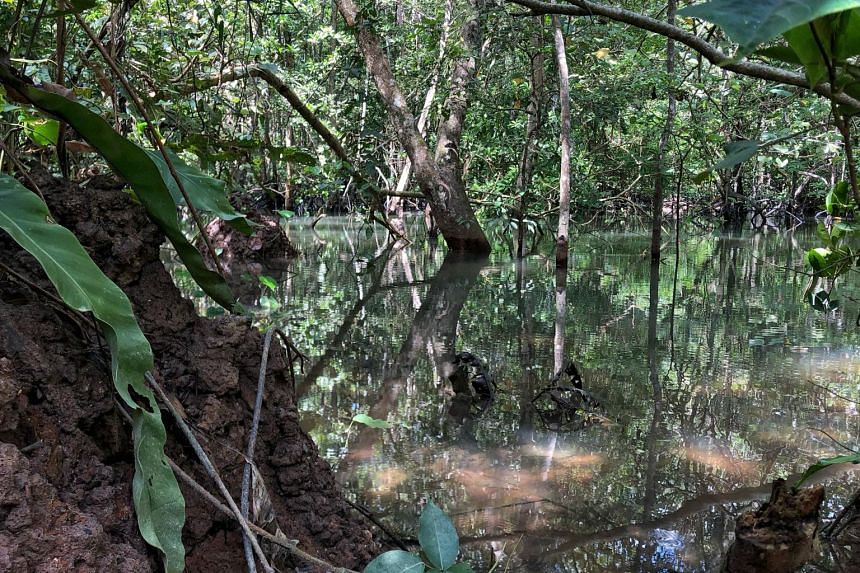
SINGAPORE – Singapore and Indonesia have expressed ambitions of becoming hubs for the growing carbon credit trade, but both marketplaces could be synergistic instead of competitive, said Singapore Institute of International Affairs (SIIA) chairman Simon Tay on recently. While more details will be needed to flesh out the announcements made by both countries, Associate Professor Tay said he was taking an optimistic approach to looking at the situation. Indonesia, with its bounty of carbon-rich peatland and mangrove areas, is a major source of these credits, he said, during a virtual dialogue on the haze outlook for this year. But Singapore could also contribute in other ways, added Prof Tay, such as in the verification of carbon credits. The Republic’s established financial hub status will also allow it to offer other services associated with the trade in carbon, such as the creation of a secondary market for carbon credits, he added. READ MORE
State violence suppresses opposition to Chinese coal plant in Bangladesh
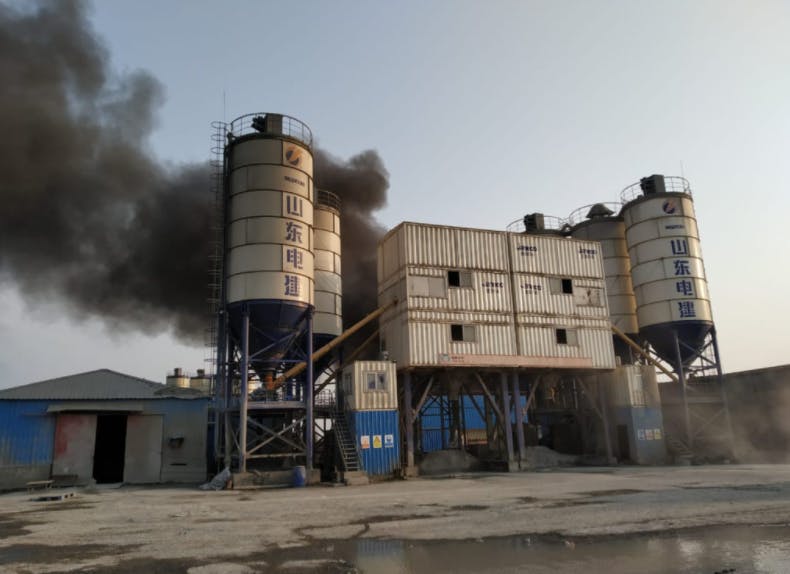
BANGLADESH – Mohammad Harun once owned a small plot of land on the Bay of Bengal coast, about 60 km south of Chattogram, the second-largest city in Bangladesh. He used it as a salt pan until it was acquired in 2015 to build a coal-fired power plant financed by China under its Belt and Road Initiative (BRI). In return, Harun says he was promised a job at the plant. That promise, he says, has not yet been kept. Meanwhile the SS Power One plant, one of 15 coal power plants planned in Bangladesh under the BRI, is being built. Harun’s story is repeated by his neighbours in Paschim Gandamara, a village in Banshkhali sub-district of Chattogram district. Most of the residents who have lost their homes and homesteads are smallholder farmers, fishers, or salt pan owners and workers. But Harun is scared to protest. The authorities have been clamping down hard on dissent. The police have registered cases against thousands of residents and workers building the plant. READ MORE
EUROPE
New guide helps forest producers develop bankable business plans
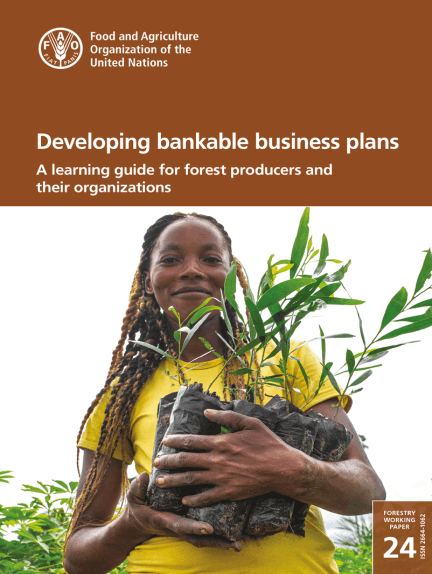
ITALY – A new guide published by FAO aims to help small forest producers and their organizations to access private investment and finance for sustainable forest-based businesses. “Investment in sustainable forest business can address climate change, biodiversity loss and poverty, which is positive for people and the planet,” said FAO Forestry Officer and co-author Marco Boscolo. “However, small producers, medium-sized enterprises and communities often struggle to develop bankable projects to access the private finance they need to get their businesses off the ground.” The new publication, Developing bankable business plans: A learning guide for forest producers and their organizations, offers a framework for forest producers to think through, organize and develop a convincing investment proposal. “By helping forest producers as individuals and as collectives to create business plans that reflect their economic and financial potential based on clear and realistic assumptions, they can participate more effectively in forest value chains, access finance to further develop their businesses, and build sustainable livelihoods for themselves and their families,” said Boscolo. READ MORE
OCEANA
Gulf of Carpentaria the ‘poor cousin’ of Great Barrier Reef in climate change action
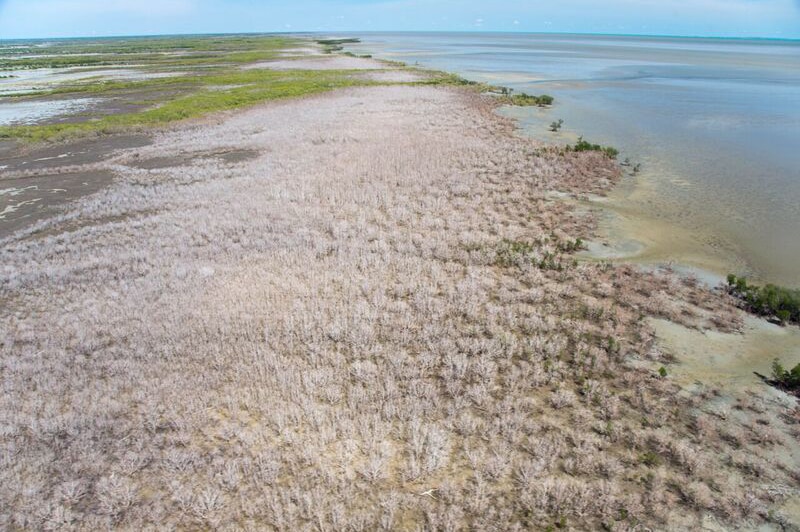
AUSTRALIA – While attention has focused on the Great Barrier Reef this week, scientists warn Gulf of Carpentaria mangroves are also being devastated by the effects of climate change.he World Heritage Committee, which sits under UNESCO, has proposed moving the Great Barrier Reef to the ‘in danger’ list because of the impact of climate change. Mangrove ecologist Norman Duke from James Cook University (JCU) said while mangroves did not carry the same classifications as the reef, the climate change impacts were comparable. JCU researchers studying the Queensland Gulf region found more than 7,500 hectares of mangrove dieback since 2015. “Weather conditions were not only enough to heat up the water and bleach the Great Barrier Reef, but it also has meant significant changes for mangroves,” Dr Duke said. “In this case, the mangroves have died from a lack of water and rain, but the events are synchronous, and that’s the point.” READ MORE
VIDEO FEATURE
Papua’s sacred forest for women only
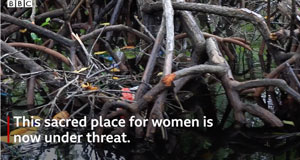
INDONESIA – In Papua, Indonesia, there is a mangrove forest that only women are allowed to enter. It’s a special place where generations of women have gathered clams and shared stories. If men are found inside the forest, they are fined. BBC Indonesia’s all-female crew was granted permission to enter. WATCH VIDEO















